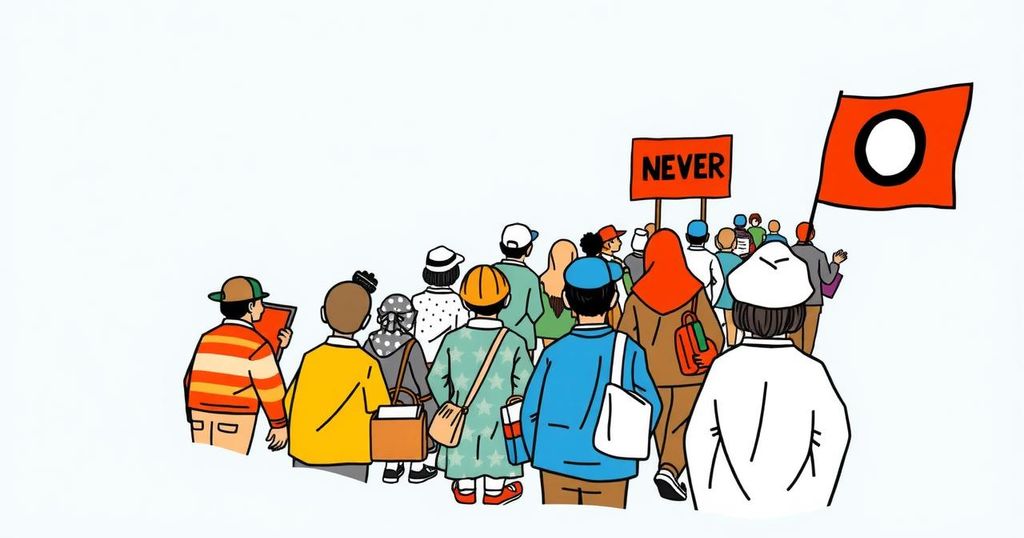Climate Action for Refugees: A Collaborative Initiative in Uganda

A collaborative initiative involving Spotify, Coldplay, FC Barcelona, and UNHCR seeks to mitigate the impacts of climate change on refugees and host communities in Uganda. The project focuses on reforestation efforts and innovative recycling methods, particularly geared towards empowering young refugees. Uganda, hosting over 1.7 million refugees, faces substantial climate challenges, further complicating the humanitarian landscape. UNHCR’s role as a coordinator of climate action highlights the urgent need for sustainable solutions to the crises at hand.
The climate crisis presents significant challenges for refugees and those displaced by conflict, particularly in regions such as Uganda where the impact is acutely felt. In response to this situation, a collaborative initiative involving Spotify, Coldplay, FC Barcelona, the FC Barcelona Foundation, and UNHCR has been established to facilitate the planting of trees in Ugandan refugee settlements and the surrounding host communities. This endeavor aims to promote reforestation in areas suffering from severe drought while simultaneously addressing plastic waste through innovative efforts by young refugees, who will convert discarded plastics into sustainable building materials. The partnership between FC Barcelona, its Foundation, and UNHCR has been active since 2022, leveraging the transformative nature of sport to enhance the protection of displaced individuals. Efforts have extended beyond Uganda to regions that include Colombia, Malaysia, Türkiye, and El Salvador, focusing particularly on supporting the well-being of refugee children and youths. Uganda, facing high vulnerability to climate-related challenges—like erratic rainfall, droughts, and floods—hosts over 1.7 million refugees from neighboring countries. These vulnerable populations are further impacted by the compounded effects of climate change, leading to increased food insecurity and strained resources among both refugees and local communities. In light of these pressing issues, UNHCR has defined its role as a coordinator of climate action for refugees, partnering with various stakeholders to ensure a holistic approach to protection and sustainable community resilience.
The intersection of climate change and forced displacement creates complex challenges for refugees and host communities alike. In Uganda, where climate-related issues are pronounced, the ongoing influx of refugees exacerbates resource scarcity and elevates tensions amid communities already dealing with extreme weather conditions. To address these pressing realities, a variety of innovative strategies are being implemented to not only provide immediate relief but also to foster long-term sustainability in affected regions. Understanding the broader implications of climate change on human displacement is essential for developing effective interventions.
The collaborative climate action initiative represents a multifaceted approach to addressing the dual crises of climate change and forced displacement in Uganda. By focusing on reforestation and waste management through local innovations, and leveraging the unifying power of sport, this initiative aims not only to enhance the lives of refugees but also to strengthen the resilience of host communities. The need for sustainable solutions to these intertwined issues remains paramount as global society grapples with the ongoing challenges posed by climate change.
Original Source: www.unhcr.org






